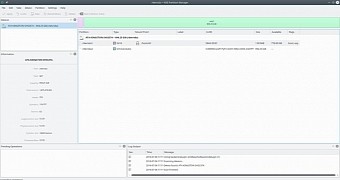Long-time KDE developer Andrius Štikonas had the great pleasure of announcing this past weekend the release and general availability of a new, major milestone of the KDE Partition Manager open-source partition editor tool for KDE Plasma desktops.
KDE Partition Manager 3.0 is now the latest stable and most advanced version of the application, which is considered a rival to the widely-used Gparted partition editor used by default in most Live ISO images of various GNU/Linux distributions. GParted is written in GTK+, not Qt, as KDE Partition Manager currently is.
Being a major release and all that, KDE Partition Manager 3.0 includes some exciting new features, such as support for LVM on LUKS and LUKS on LVM configurations, which you can view in action in the video attached at the end of the article. The new version also supports resizing of LVM Logical Volumes (LV).
Now available in KDE Neon User Edition
Among other interesting features implemented in KDE Partition Manager 3.0, we can mention support for creating LVM Volume Groups (VG), as well as support for removing or adding new LVM Physical Volumes (PV) from LVM Volume Groups (VG), and resizing of LVM Physical Volumes (PV) that belong to an existing LVM Volume Group (VG).
Online resize is another exciting new feature of KDE Partition Manager 3.0, which is supported for all filesystems that the application supports. For example, you'll be able to grow online an EXT4 file system or grow and shrink a Btrfs file system. Other than that, there is better support for sudo and the Wayland display server.
"Now KDE Partition Manager declares required environmental variables when kdesu uses sudo (e.g. in Kubuntu or Neon), so the theming is no longer broken. Also, environmental variables for Wayland are also fixed," said Andrius Štikonas in the release announcement. KDE Partition Manager 3.0 is now live in KDE Neon User Edition and you can download the source archive from our website.

 14 DAY TRIAL //
14 DAY TRIAL // 